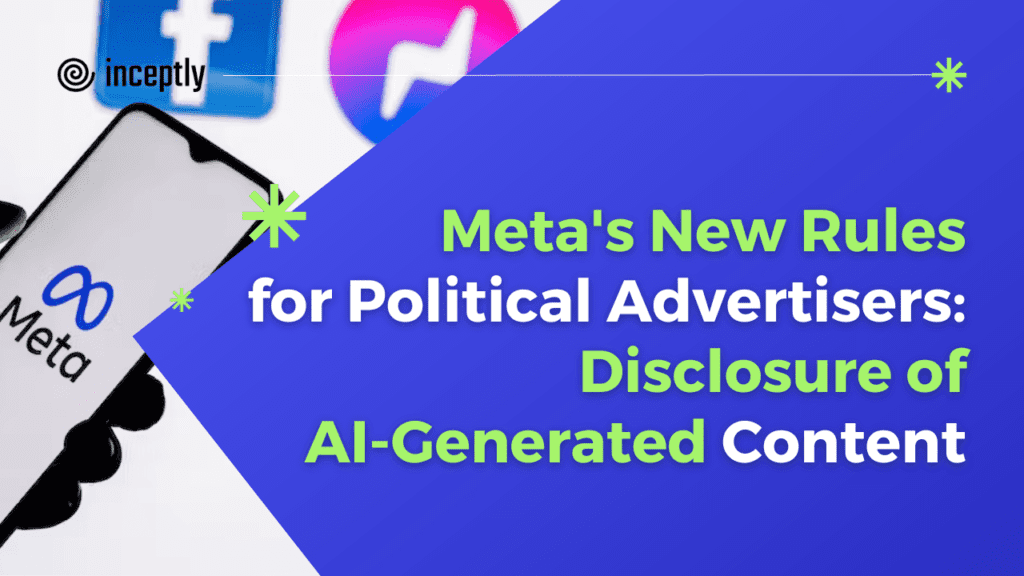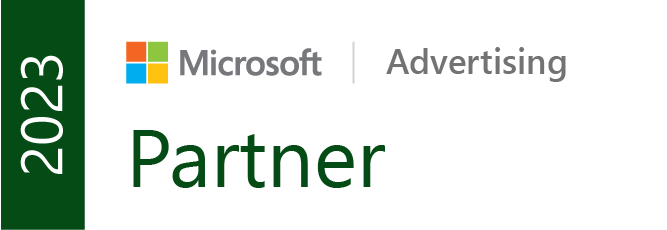
Meta, the parent company of Facebook and Instagram, recently announced new rules for political advertisers on its platforms. These rules require advertisers to disclose the use of artificial intelligence (AI) in creating or altering content for political, electoral, or social issue ads. The aim is to address concerns about potentially misleading or fake content that could mislead and confuse voters.
Want to brainstorm with our team on new ways to scale your business with YouTube Ads (and other performance video platforms)?
Join us for a free YouTube ad brainstorming session 👇
Understanding Meta's new policy
Under Meta’s new policy, advertisers running ads related to social issues, elections, or politics will have to disclose if the images, videos, or audio in their ads were created or altered digitally, including with the use of AI. This disclosure requirement applies to content that presents realistic but false depictions of real people or events. It also covers instances where existing footage of real events is altered or where fake imagery of real events is created.
The policy is set to take effect next year, and it will be enforced globally. Advertisers will be required to provide information on the use of AI in their ads, and Meta will flag this information to users. If an advertiser fails to disclose the use of AI in an ad, the ad will be rejected, and repeat offenses may result in penalties against the advertiser. However, Meta has not provided specific details about the nature of these penalties or how it will determine whether ads contain AI-generated content.
It’s important to note that Meta’s policy does not ban the use of AI in political advertising altogether. Advertisers can still use third-party AI tools to generate content for their ads as long as the use of AI is disclosed in cases where it alters the depiction of real people, events, or footage. However, minor alterations that are inconsequential or immaterial to the claim or issue raised in the ad, such as cropping or color correction, do not need to be disclosed.
The context of Meta's policy
Meta’s decision to implement these new rules comes at a time when lawmakers and regulators are also grappling with the issue of AI-generated content in political advertising. The United States has introduced bills that would require campaigns to disclose when ads include AI-generated content. The Federal Election Commission is also expected to make a decision on a new rule regarding the disclosure of AI-generated content in political ads.
The concern over AI-generated content in political advertising is driven by the potential for misinformation and deception. AI technology has advanced to the point where it can generate lifelike audio, images, and video, making it easier than ever to create convincing but false depictions. In the wrong hands, this technology could be used to create fake videos of candidates, manipulate images of election fraud, or depict scenes of violence at polling places. When disseminated through social media platforms, these AI-generated fakes can have a significant impact on public opinion and voter perception.
Alongside Meta, other major tech players like Google and Microsoft have also taken steps to address the issue of AI-generated content in political advertising. Google unveiled a similar AI labeling policy for political ads, while Microsoft introduced its own election protection commitments and the Content Credentials as a Service tool.
Meta’s new policy may serve as a foundation for a conversation around ethical AI usage.
Dan Lowden, CMO of tech firm Blackbird.AI, says that the new policy is a good first step to start a conversation around how brand advertisers need to be thinking about the creation of ads and the creation of campaigns, and the like that will somehow be impacted by the election.
“I think the challenge will be that it puts a lot of the onus on brand advertisers around determining what’s being created by AI and what’s not,” said Lowden.
Want more content like this?
Don’t miss out on the latest news and updates from the world of Direct Response advertising! Subscribe to our newsletter today 👇
Want to brainstorm with our team on new ways to scale your business with YouTube Ads (and other performance video platforms)?
Join us for a free YouTube ad brainstorming session:
Like this post? Let's continue the conversation!
Get in touch with us by shooting us a quick email or tagging us on LinkedIn or Instagram, and sharing your thoughts. Your feedback helps us keep our blog relevant and interesting.
Get Our Newsletter
Need Help?
Get in touch with us for an insightful evaluation of your ads + actionable tips to help amp up your direct response revenue



